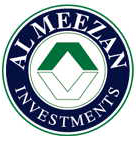| |
DUBAI — To give impetus to the growth of Islamic financing, more work is required to eliminate obstacles to that growth, the UAE Central Bank Governor, Sultan bin Naser Al Suwaidi said yesterday. He was speaking at the opening session of the Islamic Financial Services Board (IFSB) Summit held in Dubai. The IFSB is a standard-setting body for Islamic financial products.
He said it was necessary to find a greater number of Shariah-compliant financial instruments that can take care of the short-term liquidity faced by Islamic banks and "to find a more transparent way to differentiate between the dividend paid to shareholders and investors (or depositors)". It was also necessary to harmonise rulings of Shariah boards' opinions on Islamic banking and financial products, he said.
"We need also to coordinate our efforts to create an environment which would enable more co-operation between our banks, such as the creation of common automatic teller machines (ATMs) and point of sale (PoS) switches and other common electronic payment systems. These are projects we should endeavour to achieve in the near future," he commented.
"We should also try to work jointly to improve the efficiency of our financial insfrastructural arrangements on a state level, to help the flow of capital, investments, trade and tourism transactions between our countries," Al Suwaidi also said.
According to statistics from March 31, 2007, there are five full-fledged Islamic banks in the UAE with another two in the final stage of incorporation. This is out of a total number of 46 banks. And there are 10 Islamic finance and investment companies in the UAE, said Al Suwaidi.
Speaking on the sidelines of the summit, the Central Bank Governor also commented that the central banks of the six GCC states would meet to co-ordinate a response to any US interest rate cut, "if we got to that point." But he also confirmed that the GCC would maintain its common monetary policy.
Al Suwaidi continued to rule out any likelihood that the dirham would be de-pegged from the US dollar and dismissed any suggestion that the dirham-dollar peg was bad for the country. "Seventy per cent of our imports are in dollars or currencies pegged to the dollar. It's a good thing to keep our dollar peg," said Al Suwaidi, adding that a shortage of housing and office space were the main drivers of inflation in the UAE.
Speaking via a video link from Malaysia, the Governor of the Central Bank of Malaysia, Zeti Akhtar Aziz, said: "Aligning cross sectoral approaches is a key part of the process of building a viable and sustainable Islamic financial system". She highlighted the need to continue efforts to strengthen the "international Islamic financial architecture" and "to enhance international cooperation and collaboration."
"It is our hope that this summit will contribute towards building greater collective efforts through multi-stakeholder deliberations and networking activities to improve our understanding on the cross-sectoral issues in Islamic finance."
The managing director of the International Monetary Fund (IMF), Rodrigo de Rato, also gave a keynote address during which he emphasised the necessity of a sound macroeconomic environment and healthy domestic financial system to ensure the success of financial integration. He emphasised the need for supervisors to work more closely together to improve the financial system.
Rato emphasised that national supervisors needed to put in place systems of globally consolidated supervision. This requires that supervisors have the legal ability to perform consolidated supervision, apply prudential regulation on a consolidated basis and share information with other domestic and relevant foreign supervisors, he said. "A lot of work remains to be done in this regard", he added.
According to assessments carried out by the IMF and World Bank, "more than half of the assessed countries did not have effective frameworks of consolidated supervision in place," he said, adding: "I hope that national authorities will accord this a high priority in their reform agenda."
To conclude Rato said: "Developing and promoting improved mechanisms for cooperation and coordination should therefore be a priority for supervisors, stand setters and international financial institutions." |








